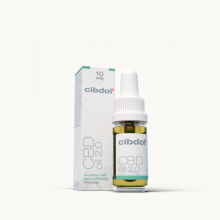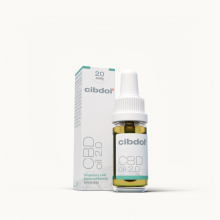Is CBD oil good for endocannabinoid system?
Last updated:
Published:
 Have you heard about the endocannabinoid system (ECS) and wondered what it is? And more importantly, how CBD oil might interact with it?
Have you heard about the endocannabinoid system (ECS) and wondered what it is? And more importantly, how CBD oil might interact with it?
Contents:
- Understanding the Endocannabinoid System
- How CBD Oil Interacts with the Endocannabinoid System
- Potential Benefits of CBD Oil for the Endocannabinoid System
- Choosing High-Quality CBD Oil
- Conclusion
-
FAQ: Is CBD Oil Good for the Endocannabinoid System?
- Q: Can CBD oil help with endocannabinoid deficiency?
- Q: How long does it take for CBD oil to have an effect on the endocannabinoid system?
- Q: Are there any side effects of using CBD oil for the endocannabinoid system?
- Q: Can CBD oil interact with other medications?
- Q: Is it safe to use CBD oil long-term for the endocannabinoid system?
- Q: Can children or pregnant women use CBD oil for the endocannabinoid system?
- Q: How do I choose a high-quality CBD oil product?
- Summary:
The ECS is a complex network of receptors and compounds that play a vital role in regulating various physiological processes in our bodies. It's responsible for maintaining homeostasis, or balance, in areas like mood, sleep, appetite, pain perception, and immune function.
So, is CBD oil good for the endocannabinoid system? Let's explore this fascinating topic.
Understanding the Endocannabinoid System
The ECS is made up of three main components: endocannabinoids, receptors, and enzymes. Endocannabinoids are naturally produced by our bodies, and they bind to receptors found throughout the brain, organs, and tissues.
When the ECS is functioning optimally, it helps maintain balance and harmony within the body. However, various factors can disrupt this balance, leading to potential health issues.
How CBD Oil Interacts with the Endocannabinoid System
While CBD oil is not an endocannabinoid itself, it interacts with the ECS in a unique way. Rather than binding directly to the receptors, CBD influences the system indirectly by inhibiting the enzymes that break down endocannabinoids.
By slowing down the breakdown of endocannabinoids, CBD oil helps increase their levels and prolong their effects. This, in turn, can potentially support the ECS in maintaining balance and homeostasis throughout the body.
Are you curious about the potential benefits of supporting your endocannabinoid system with CBD oil? Let's take a closer look.

Potential Benefits of CBD Oil for the Endocannabinoid System
Research suggests that CBD oil may offer a range of benefits by supporting the ECS, including:
Reduced Anxiety and Stress
By interacting with the ECS, CBD oil may help regulate mood and reduce feelings of anxiety and stress.
Improved Sleep Quality
The ECS plays a role in the sleep-wake cycle. Supporting this system with CBD oil may promote better sleep onset and duration.
Pain Relief
The ECS is involved in pain modulation. CBD oil may help alleviate chronic pain by supporting this system.
Enhanced Immune Function
The ECS also plays a role in immune regulation. By supporting its optimal function with CBD oil, you may experience improved immune response.
Choosing High-Quality CBD Oil
If you're considering incorporating CBD oil into your routine to support your endocannabinoid system, it's crucial to choose high-quality products from reputable brands.
Look for third-party lab testing results, clear labeling of ingredients and potency, and follow dosage recommendations. It's also a good idea to consult with a healthcare professional, especially if you have underlying medical conditions or are taking other medications.
Conclusion
The endocannabinoid system plays a vital role in maintaining balance and homeostasis within our bodies. By interacting with this system, CBD oil may offer a range of potential benefits, from reducing anxiety and improving sleep quality to alleviating pain and supporting immune function.
While more research is still needed, many individuals have found success in supporting their endocannabinoid system with high-quality CBD oil. By understanding the intricate relationship between CBD and the ECS, you may be able to unlock a path to improved overall well-being.

FAQ: Is CBD Oil Good for the Endocannabinoid System?
Q: Can CBD oil help with endocannabinoid deficiency?
Yes, CBD oil may help support the endocannabinoid system when there is a deficiency or imbalance. By interacting with the system, CBD oil can potentially increase endocannabinoid levels and promote homeostasis within the body.
Q: How long does it take for CBD oil to have an effect on the endocannabinoid system?
The time it takes for CBD oil to have an effect on the endocannabinoid system can vary from person to person. Some individuals may notice improvements within a few days or weeks, while others may require a longer adjustment period of consistent use.
Q: Are there any side effects of using CBD oil for the endocannabinoid system?
CBD oil is generally well-tolerated, but some potential side effects include drowsiness, dry mouth, and changes in appetite. It's essential to start with a low dose and gradually increase as needed.
Q: Can CBD oil interact with other medications?
Yes, CBD oil can potentially interact with certain medications, such as blood thinners, antidepressants, and seizure medications. It's crucial to inform your healthcare provider about any supplements or medications you're taking.
Q: Is it safe to use CBD oil long-term for the endocannabinoid system?
While more research is needed on the long-term effects of CBD oil, it is generally considered safe for most adults when used as directed and from reputable sources.
Q: Can children or pregnant women use CBD oil for the endocannabinoid system?
More research is needed on the safety and efficacy of CBD oil for the endocannabinoid system in children and pregnant or breastfeeding women. It's crucial to consult with a healthcare professional before using any supplements in these populations.
Q: How do I choose a high-quality CBD oil product?
When choosing a CBD oil product, look for reputable brands that provide third-party lab testing results and clear labeling of ingredients and potency. It's also essential to follow dosage recommendations and consult with a healthcare professional.
Summary:
The endocannabinoid system (ECS) is a fascinating network of receptors and compounds that plays a crucial role in maintaining balance and homeostasis within our bodies. It regulates various physiological processes, including mood, sleep, appetite, pain perception, and immune function. So, the question arises: is CBD oil good for the endocannabinoid system?
While CBD oil is not an endocannabinoid itself, it interacts with the ECS in a unique way. Instead of binding directly to the receptors, CBD influences the system indirectly by inhibiting the enzymes that break down endocannabinoids. By slowing down this breakdown, CBD oil helps increase endocannabinoid levels and prolong their effects, potentially supporting the ECS in maintaining balance throughout the body.
Research suggests that CBD oil may offer a range of benefits by supporting the endocannabinoid system. These include reduced anxiety and stress, improved sleep quality, pain relief, and enhanced immune function. By interacting with the ECS, CBD oil may help regulate mood, promote better sleep onset and duration, alleviate chronic pain, and support optimal immune response.
If you're considering incorporating CBD oil into your routine to support your endocannabinoid system, it's crucial to choose high-quality products from reputable brands. Look for third-party lab testing results, clear labeling of ingredients and potency, and follow dosage recommendations. It's also a good idea to consult with a healthcare professional, especially if you have underlying medical conditions or are taking other medications.















